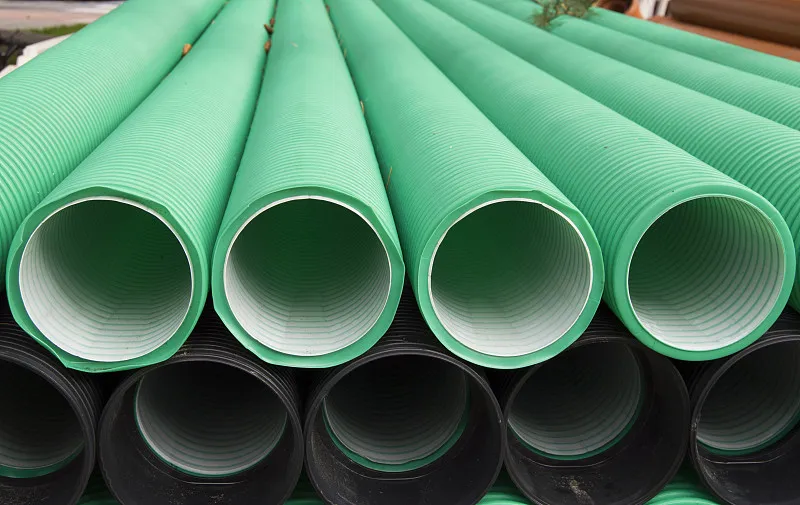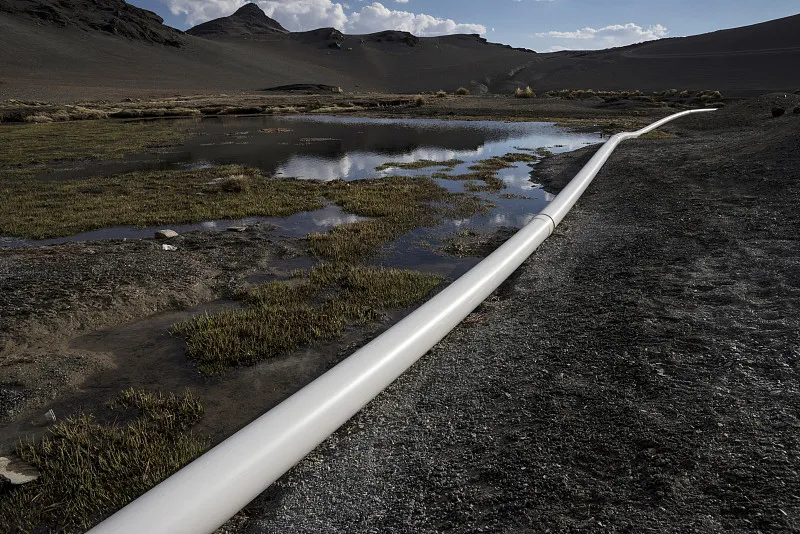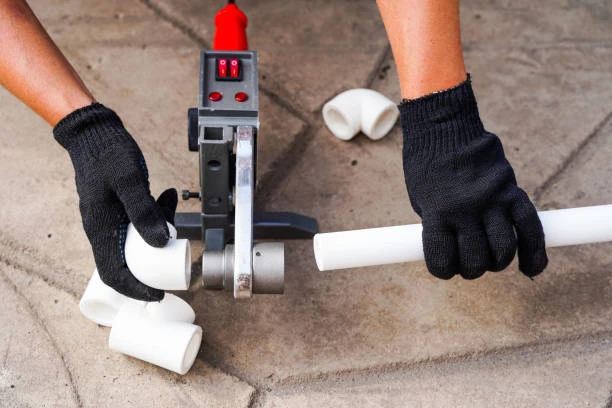Introduce PPR Pipe
In recent years, PPR Pipe systems have become a preferred choice for plumbing applications due to their durability, resistance to corrosion, and high-temperature tolerance. As the demand for reliable and long-lasting plumbing solutions increases, so does the demand for PPR ball valves. These valves, which are specifically designed to control the flow of water or other fluids in a PPR pipe system, are gaining popularity due to their numerous advantages over traditional valve types.
This article will explore why PPR pipe ball valves are increasing in demand, the factors contributing to their rise, and how they are transforming the plumbing industry.
Understanding PPR Pipe Ball Valves
A PPR pipe ball valve is a type of valve that uses a spherical ball with a hole through the center to control fluid flow within a piping system. The ball is rotated within the valve body, allowing or stopping the flow depending on its position. When the hole in the ball aligns with the pipe, the valve is open, and when it rotates 90 degrees to close, the flow of fluid is stopped.
Made from Polypropylene Random Copolymer (PPR), these valves are compatible with PPR pipe systems, ensuring optimal performance and durability. PPR ball valves are widely used in both residential and industrial applications due to their simple design, easy operation, and longevity.
Factors Driving the Increasing Demand for PPR Pipe Ball Valves
1. Durability and Longevity
One of the main reasons PPR pipe ball valves are seeing increased demand is their remarkable durability. PPR pipes themselves are known for their long lifespan, often exceeding 50 years. When paired with PPR ball valves, these systems can last for decades without significant wear or maintenance issues. PPR ball valves are resistant to corrosion, rust, and chemical degradation, ensuring that they maintain their performance in harsh conditions.
In plumbing systems where valves are subject to high temperatures, pressures, and chemical exposure, PPR ball valves offer a reliable solution. These valves do not corrode like metal valves and are far less likely to degrade over time. As more industries and households seek long-lasting, low-maintenance solutions, the demand for PPR ball valves continues to grow.
2. Cost-Effectiveness
PPR ball valves are generally more affordable compared to traditional metal ball valves made from materials like brass, copper, or stainless steel. The lower upfront cost, coupled with their longevity and resistance to corrosion, makes PPR ball valves a cost-effective option in the long run.
While the initial cost of installation may be slightly higher than other types of valves, the extended lifespan of PPR ball valves means fewer replacements and reduced maintenance costs. This cost-efficiency is particularly appealing in both residential plumbing and large-scale industrial applications where long-term financial considerations are essential.
3. Ease of Installation
Another reason for the increasing demand for PPR ball valves is their ease of installation. Unlike metal valves, which often require complex threading, welding, or sealing, PPR ball valves are joined to PPR pipes using the heat fusion method. This method involves heating the pipe and valve fittings, then pressing them together to create a strong, leak-proof bond.
The heat fusion process is simple, fast, and does not require specialized skills or tools. This makes the installation of PPR ball valves much more accessible for both professionals and DIY enthusiasts. Additionally, PPR pipes and ball valves are lightweight, making them easier to handle and transport during installation.
4. High Resistance to Temperature and Pressure
PPR ball valves are designe to withstand high temperatures and pressures, which makes them an ideal choice for hot and cold water distribution systems, industrial applications, and heating systems. PPR pipes, along with their associated ball valves, can endure temperatures up to 95°C (203°F) and pressures of up to 20 bar. This durability makes PPR ball valves an excellent choice for both residential and commercial plumbing systems that require consistent performance under challenging conditions.
As the need for energy-efficient and high-performance systems grows, especially in commercial and industrial environments, PPR ball valves are becoming an increasingly popular option for those looking to optimize their plumbing systems.

5. Environmental Considerations
As sustainability becomes a greater concern across industries, more people are turning to eco-friendly alternatives. PPR ball valves offer several environmental benefits, contributing to their increasing demand. PPR pipes and valves are 100% recyclable, which reduces their environmental footprint compared to traditional metal valves, which can be harder to recycle.
In addition, PPR pipe systems are non-toxic and free from harmful substances, ensuring that the water transported through them remains clean and safe for consumption. This is particularly important in drinking water systems where contamination from chemicals, rust, or metals could compromise water quality.
6. Leak-Proof Performance
Leakage in plumbing systems is a significant concern that can lead to water damage, mold growth, and costly repairs. PPR ball valves are designe to provide a leak-proof connection between the valve and the pipe. The heat fusion process creates a seamless joint that eliminates the risk of leaks, ensuring that water flow remains steady and secure.
This reliable performance is particularly valuable in large-scale applications, such as industrial plumbing systems, where water leaks can cause significant operational disruptions and expensive repairs.
7. Versatility and Wide Range of Applications
PPR ball valves are highly versatile, making them suitable for a wide range of applications. They are use in residential water supply systems, industrial applications, heating systems, irrigation setups, solar water heating, and more. Their ability to handle both hot and cold water, as well as their resistance to chemicals and pressure, makes them ideal for systems that require flexibility and reliable flow control.
For instance, in irrigation systems, PPR ball valves can regulate water flow efficiently, while in industrial plants, they can control the distribution of hot water or chemicals. The wide range of uses further increases the demand for PPR ball valves in various industries and sectors.
8. Growing Global Construction Market
The global construction industry is growing, especially in emerging markets like India, China, and the Middle East, where infrastructure development is booming. As the demand for new buildings, commercial spaces, and industrial facilities increases, the need for reliable and durable plumbing systems grows as well. PPR pipes and ball valves are increasingly being specified for new construction projects due to their cost-effectiveness, ease of installation, and long-term durability.
In these rapidly developing regions, PPR ball valves are becoming the preferred choice for controlling the flow of water in plumbing systems. The growing construction market is a significant driver of the increasing demand for these valves.
9. Increasing Focus on Energy Efficiency
Energy efficiency is an important consideration in both residential and industrial plumbing systems. PPR ball valves, when combined with PPR pipe systems, help reduce energy consumption by minimizing heat loss in hot water systems. The smooth interior surface of PPR pipes, along with the leak-proof performance of PPR ball valves, ensures optimal water flow, reducing the amount of energy required to maintain the desired water temperature.
As more consumers and businesses focus on reducing their energy footprint, PPR pipe and valve systems offer a sustainable solution for both new installations and system upgrades.
10. Enhanced Safety and Hygiene
PPR ball valves also offer enhanced safety and hygiene compared to traditional valves. Since PPR is non-toxic and does not corrode, there is no risk of contamination from harmful substances or heavy metals. This makes PPR ball valves especially valuable in systems that carry drinking water or other potable liquids. Ensuring that the water remains clean and safe for consumption.
Conclusion PPR Pipe
The increasing deman for PPR pipe ball valves can be attribute to several factors. Including their durability, cost-effectiveness, ease of installation, and versatility. As more industries and consumers seek reliable and long-lasting plumbing solutions, PPR ball valves offer a sustainable and efficient choice. Whether used in residential plumbing systems, industrial applications. Or large-scale infrastructure projects. PPR ball valves provide a reliable and cost-effective solution for controlling the flow of water and other fluids.
With their numerous advantages. PPR ball valves are poise to continue gaining popularity in the plumbing industry for years to come.
Frequently Asked Questions (FAQ)PPR Pipe
- What is a PPR Pipe ball valve? A PPR pipe ball valve is a valve made from Polypropylene Random Copolymer (PPR) that controls the flow of water or other fluids within a PPR pipe system. It operates using a rotating ball with a hole through the center to open or close the flow.
- Why are PPR Pipe ball valves gaining popularity? PPR ball valves are gaining popularity due to their durability, cost-effectiveness, ease of installation, and resistance to corrosion. They are also environmentally friendly and offer leak-proof performance, making them a preferred choice in plumbing systems.
- Where can PPR Pipe ball valves be use? PPR ball valves are use in a wide range of applications, including residential plumbing, industrial water systems, heating systems, irrigation systems, solar water heating systems, and more.
- How do PPR Pipe ball valves work? PPR ball valves work by rotating a spherical ball with a hole through the center. When the hole aligns with the pipe, the valve is open, allowing fluid to flow. When the ball is rotate 90 degrees, the hole is no longer aligned, stopping the flow of fluid.
- What are the benefits of using PPR Pipe ball valves? The benefits of using PPR ball valves include their long lifespan, resistance to corrosion. Leak-proof design, ease of installation, energy efficiency, and ability to withstand high temperatures and pressures.


















